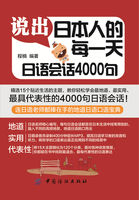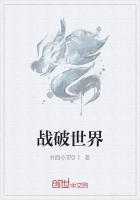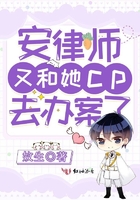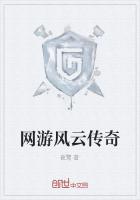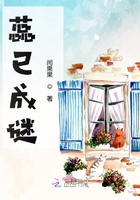The first Christmas after our daughter Jessica was born, we spent the holiday with my parents. After dinner, Mom and Dad sat next to each other on the sofa, taking turns cuddling their first grandchild. Jessica began to whimper softly, and Susan took her from Dad’s arms. “She probably needs to be changed.” she said, carrying the baby into my parents’ bedroom to diaper her.
When Susan came back into the living room, there was a strange mist in her eyes. She handed Jessica back to Dad before taking my hand and quietly leading me into the room.
“Look.” she said softly, her eyes directing me to a spot on the floor beside the dresser. To my amazement, there, as if it had never been removed, stood the old pickle jar, the bottom already covered with coins. I walked over to the pickle jar, dug down into my pocket, and pulled out a fistful of coins. With a gamut of emotions choking me, I dropped the coins into the jar. I looked up and saw that Dad, carrying Jessica, had slipped quietly into the room. Our eyes locked, and I knew he was feeling the same emotions I felt. Neither one of us could speak.
自从我记事起,那个大腌菜罐就在父母卧室梳妆台旁的地板上放着。每晚,爸爸上床睡觉前,都要把口袋里的硬币全掏出来,扔进罐子里。小时候,我很喜欢听硬币扔进罐子时所发出的声响。罐子快要空的时候,硬币投进去发出轻快的叮当声。罐子快要装满时,叮当声便慢慢地变成了沉闷的砰砰声。太阳从卧室的窗子射进来时,照在罐子里的硬币上,它们就如海盗劫掠去的珍宝一般熠熠闪光。每到这时,我就会蹲下身来欣赏这些亮晶晶的硬币。
罐子满后,爸爸便坐在餐桌旁,用纸把硬币卷起来,然后存到银行去。把硬币拿到银行存并不是件容易的事。通常,我们是开着爸爸那辆旧卡车去。我们把硬币齐刷刷地堆进一个小硬纸盒里,放在我和爸爸的座位之间。每次,我们开车去银行时,爸爸都充满希望地看着我:“那些钱将会使你离开纺织厂,儿子。你会生活得比我好。这个古老的工业小镇不会再拖你的后腿,你就可以自由发展了。”他每次在银行的柜台前,把那成卷的硬币推给出纳员时,总是咧着嘴骄傲地笑个不停:“这些钱是准备供我儿子上大学的。他绝不会像我一样,在工厂里工作一辈子。”
每次存完钱,我们都会到冰淇淋店买两个蛋卷冰淇淋来庆贺一番。我总吃巧克力味的,而爸爸总吃香草味的。当店员给爸爸找零时,他总会把硬币摊在掌心给我看:“我们回家又可以把它们扔进罐子里了。”
他总是让我往空罐子里投第一把硬币。听到硬币落进罐子底儿时发出轻快的脆响时,我们就互相看看,咧嘴一笑。“你就是要用这些1分、5分、1角和2角5分的硬币,去上大学。”他说,“不过,你一定要努力考大学,我要看着你上大学。”
很多年过去了,我大学毕业后在另一个镇子找了份工作。一次,我去看父母,到他们卧室打电话时,发现那个腌菜罐不见了。它完成了使命,被搬走了。看着梳妆台旁那个原来放罐子的地方,一阵莫名的压抑感顿时袭上我的心头。爸爸是一个不善言谈的人,他从不和我讲决心、意志和信念的价值。但是这个腌菜罐比任何华丽的辞藻都更具说服力,它把这些美德都传授给了我。
结婚时,我把那个腌菜罐的故事讲给了妻子苏珊,并告诉她,它在我的成长过程中起了重要的作用。在我看来,它比任何事情都更能表明爸爸对我深切的爱。不论家里的生活多么艰难,爸爸从未间断过往罐子里投硬币。那个夏天,他被工厂解雇了,我们不得不一周吃好几次干豆子,即使在这样艰难的情况下,爸爸也没有从罐子里拿过一分钱,反而看着餐桌对面的我,把番茄酱倒在我盘里的豆子上,让它们吃起来更可口些。此时的他,为我谋出路的决心比平时更坚定了。“等你大学毕业后,儿子,”他眼睛里闪着泪光说,“以后除非你想吃,否则你不会再吃这种豆子了。”
女儿杰西卡出生后的第一个圣诞节,我们是和父母一起过的。吃过晚饭,父母并排坐在沙发上,轮流抱他们的第一个孙女。杰西卡开始小声哭起来了,苏珊从爸爸怀里接过孩子:“该换尿布了吧。”说着,就抱着女儿进了父母的卧室换尿布去了。
苏珊回到客厅后,泪眼朦胧。她把杰西卡又递给爸爸,一句话也没说,便拉起我的手,走进了父母的卧室。
“你看。”她轻声说,我沿着她的目光向梳妆台旁边的地板看去,惊讶地发现,那个旧腌菜罐就放在那儿,好像从来没挪开过一样,罐底已经铺了一层硬币。我走到腌菜罐旁,手伸进口袋,掏出一把硬币,激动地把它们投了进去。我抬头看到爸爸抱着杰西卡轻轻地走进了卧室。我们四目相对,我知道此时此刻,他也同我一样激动。我们默默地注视着对方,无以言表。
记忆填空
1. As a small I was always fascinated at the the coins made as they were dropped into the jar. They landed with a jingle when the jar was almost empty. Then the tones gradually muted to a dull thud as the was filled.
2. No how rough things got at home, Dad continued to doggedly his coins into the jar. the summer when Dad got laid off from the mill, and Mama had to serve dried beans several times a week, not a single dime was from the jar.
3. When Susan came back the living room, there was a strange mist in her . She handed Jessica back to Dad before taking my hand and quietly me into the room.
佳句翻译
1. 当店员给爸爸找零时,他总会把硬币摊在掌心给我看。
2. 但是这个腌菜罐比任何华丽的辞藻都更具说服力。
3. 即使在这样艰难的情况下,爸爸也没有从罐子里拿过一分钱。
短语应用
1. On the contrary, as Dad looked across the table at me.
on the contrary:正相反;相反;反之
2. Those coins are going to keep you out of the textile mill.
keep out of:躲开;置身……之外;防治;避免;使……不进入

